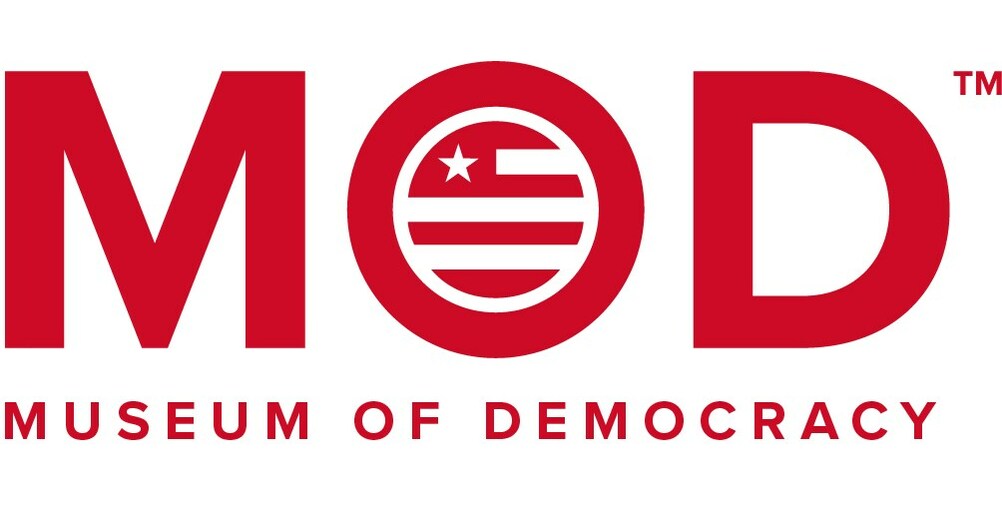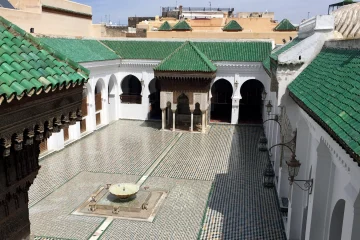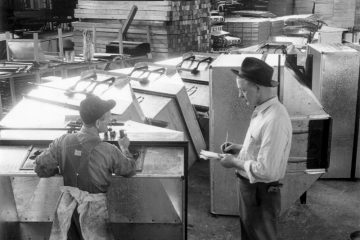Written By: Adina Vega
Edited By: Michelle Sosa and Genevieve Hammang

The Museum of Democracy is located at The Roosevelt School in Long Island University.
The 26th Amendment, Section 1 of the Constitution, states, “The right of citizens of the United States, who are eighteen years of age or older, to vote shall not be denied or abridged by the United States or any State on account of age.” Having the right to vote is a sign of adulthood and fundamental to a functioning democracy. Election season is upon us, and what better time to reflect on historic elections and the news and media they generated? One family has made collecting historical and political campaign memorabilia their passion, and it’s become an important collection to political historians and collectors worldwide.
The Museum of Democracy (MOD) is located at The Roosevelt School in Long Island University. It contains the nation’s most significant historical and political campaign memorabilia collections. It comprises over a million objects accumulated over four decades, including pieces dating back to George Washington’s presidential campaign. The collection’s quality and quantity is paramount. Avoiding bias, the collection features materials from major social causes and freedom and democracy movements. It is inclusive and illustrates the history of politics and political reform in America by including information from the civil rights movement, women’s rights, and social justice. All political parties and affiliations are represented in the collection.

Jordan M. Wright poses with his book, Campaigning for President, and a part of his collection of over a million pieces of political and historical artifacts.
Jordan M. Wright, a New York lawyer, businessman, and magazine publisher, began collecting political memorabilia at age ten. In one interview, he reminisces on collecting the “Bobby Kennedy for President” buttons he nabbed as a preteen from RFK’s campaign office. His youthful interest slowly turned into an obsession, and he was known to frequent auction houses and fairs, private dealers, and antique shops to find items to add to the collection. Wright died unexpectedly at age 50 in 2008, but his collection undoubtedly lives on forever. It tells exciting and attention-grabbing stories of how incumbents, candidates, and their losing rivals have attracted and persuaded voters since America was founded. Austin Wright, Jordan’s son, is a political consultant who has made it a goal to preserve and add to his father’s collection.

Austin Wright with some of the political memorabilia collected by his father, Jordan M. Wright.
Wright collected everything, including rare flags, posters, paper dresses, lanterns, ice cream bars, and sunglasses. The button collection tells stories about candidates attempting to lure voters with catchy slogans and humorous play on words. New York Mayor Michael R. Bloomberg was so impressed by Wright’s collection that he donated more than $400,000 of his own money to finance the curation of the section exhibited by the Museum of the City of New York. Bloomberg found value in the diverse collection of objects that tell stories of how election messaging and persuasion, mudslinging, and catchy slogans are engrained in the American culture.

Models wearing political paper dresses featuring presidents like Nixon and Regan were popular in the 1960s. The MOD has several of these dresses.
Political elections make headlines and change lives; Jordan M. Wright knew that better than anyone else. His collection demonstrated how he found political strategies fascinating and enjoyed collecting obscure and well-known pieces that told a story about how the nation was reacting to the politics of the time. Whether it be President Obama’s inspiring “Yes We Can” campaign or Dwight Eisenhower’s “I Like Ike” campaign slogan, the Museum of Democracy reminds us of the importance of voting and preserving democracy. So get out there and vote!
The MOD awards scholarships and research grants to students and scholars studying democracy, American history, comparative government, museum studies, material culture, and art history. For more information on the Museum and recent updates, visit the MOD Facebook page.



0 Comments